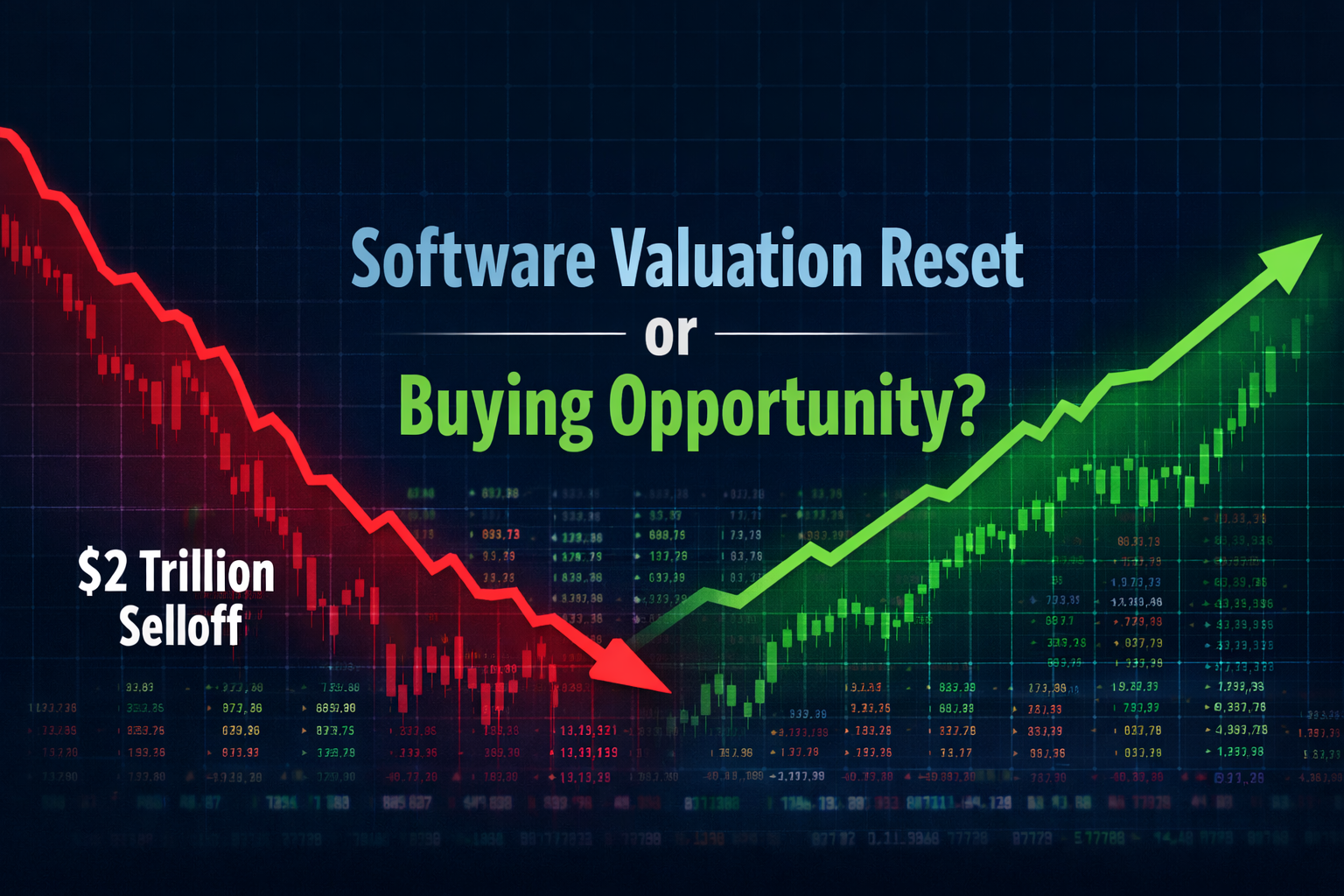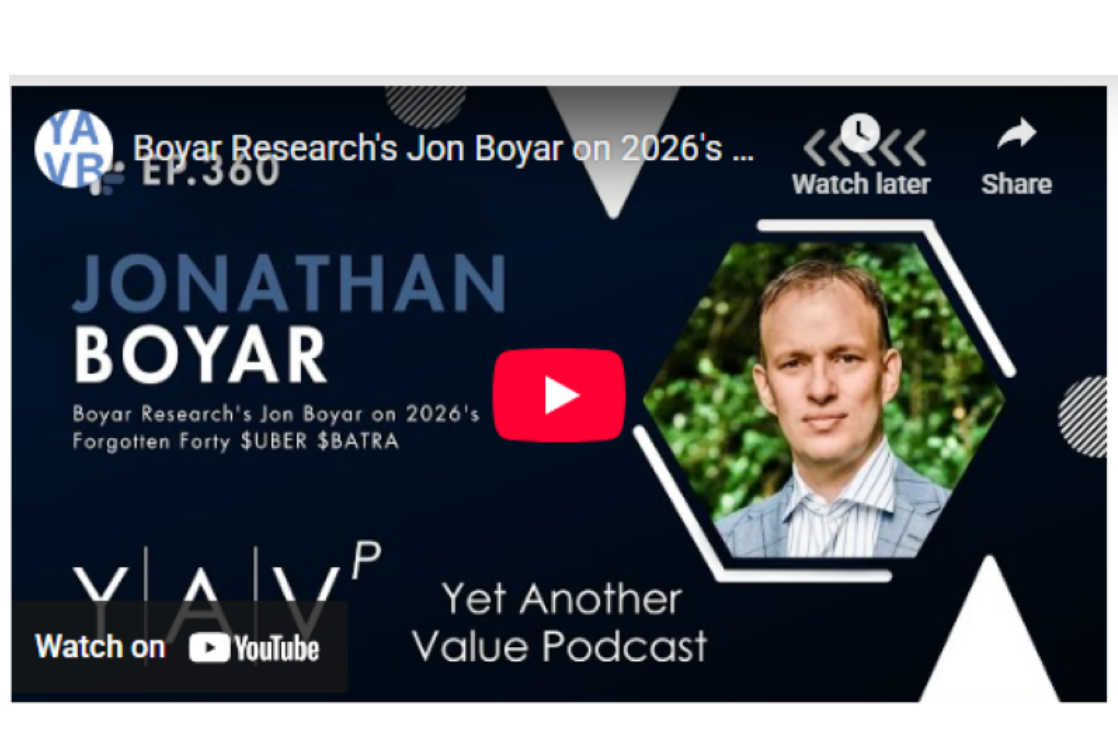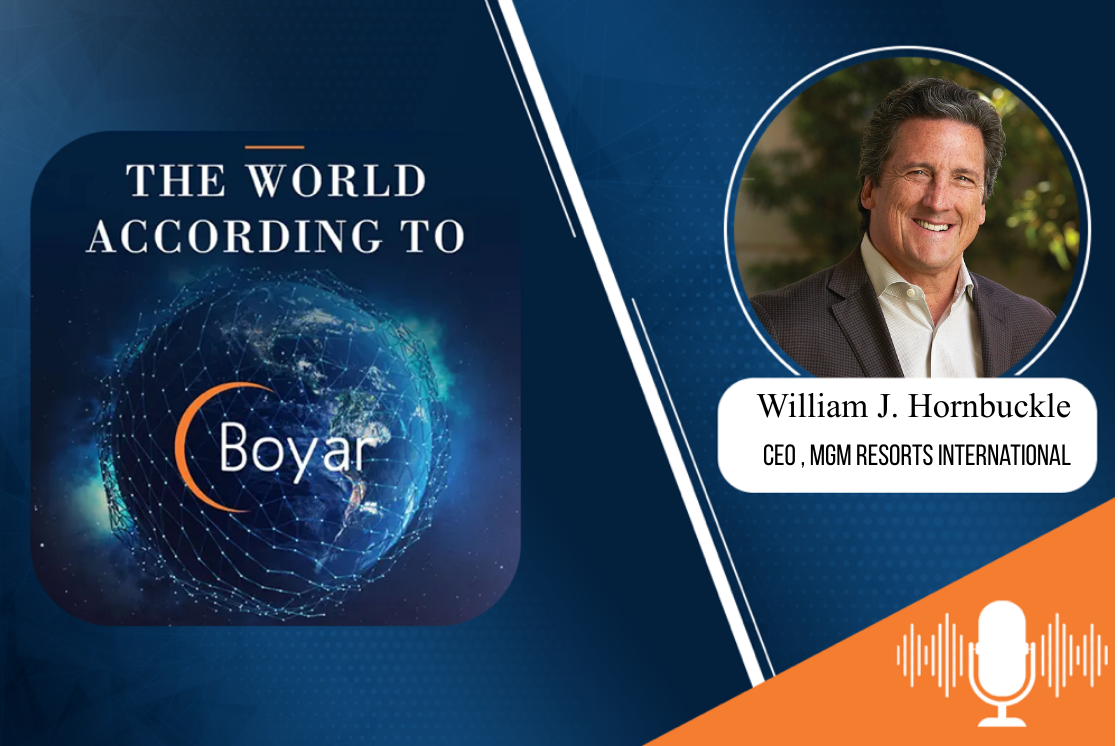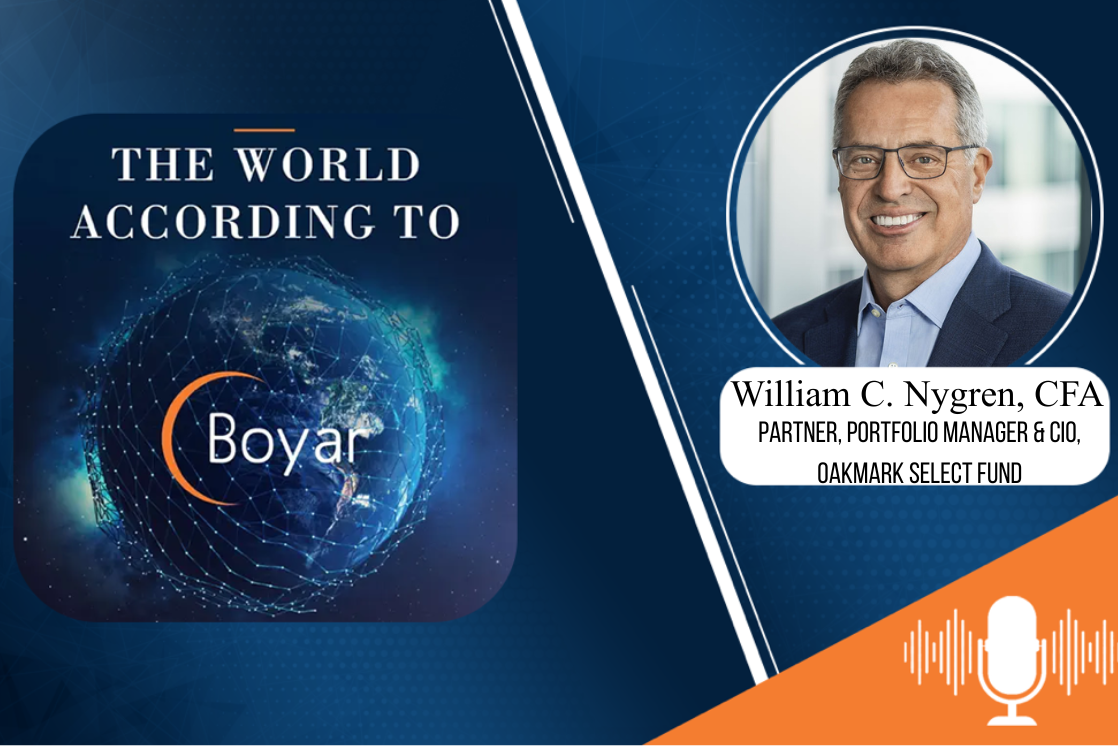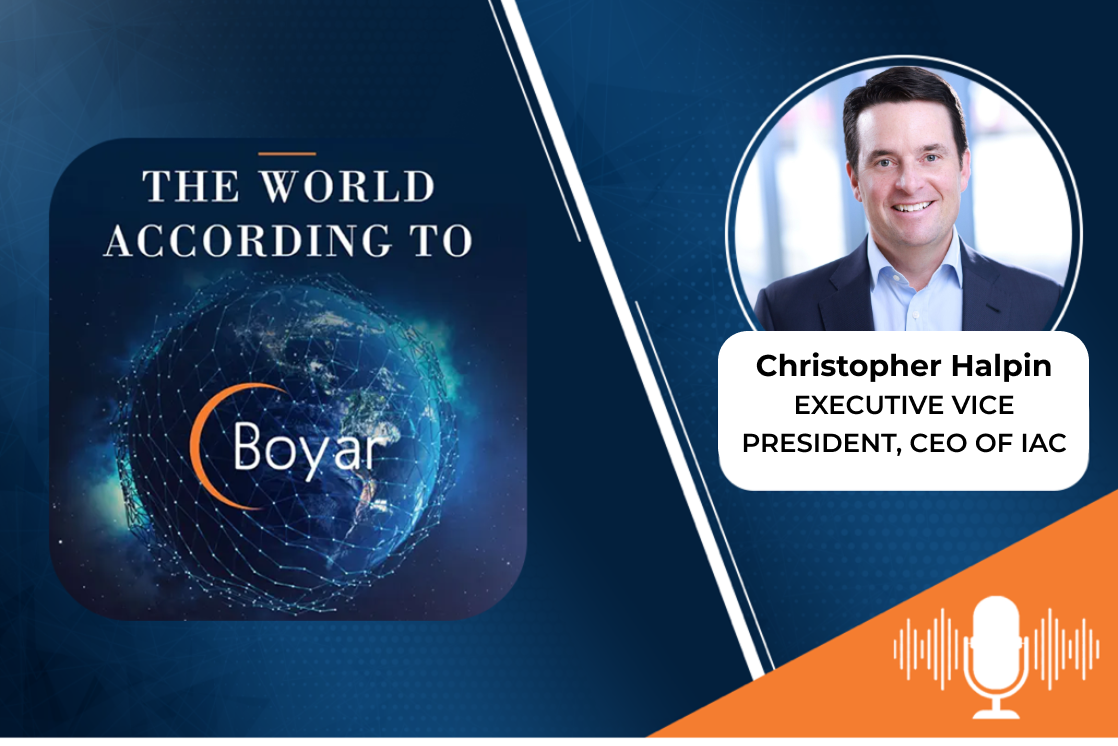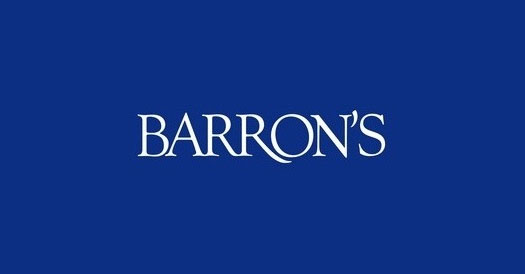Ryan Serhant, CEO and Founder of Serhant on the NYC real estate market, potential technological disruption in the real estate brokerage industry, his firm Serhant, Jolie at 77 Greenwich and more.
Howard Lorber, CEO of Vector Group, Chairman of Douglas Elliman, Chairman of Nathan's famous, on the New York real estate business and how he believes technology will impact the real estate brokerage business. - Value Investing Podcast
Tom Gayner, Co-CEO of Markel discusses the evolution of Markel into a Fortune 500 company, the secret to success in the investment business and much more… - Boyar Value Group
Legendary Investor Leon Cooperman on asset allocation, interest rates, Berkshire Hathaway, and where he is currently finding value in the stock market. - Value Investing Podcast
The Interview Discusses:
- The state of the NYC real estate market and why he believes it will quickly become a seller’s market.
- Areas outside of NYC where he is currently finding compelling long-term investment opportunities.
- His firm Serhant which he launched in the beginning of the pandemic.
- The process he takes when branding properties including Jolie located at 77 Greenwich Street.
- Potential technological disruption in the real estate brokerage industry.
- How he leveraged his fame from The Million Dollar Listing show to become one of the country’s most successful real estate brokers.
- How he utilizes social media to successfully market properties.
About Ryan Serhant:
Ryan Serhant, CEO, broker and founder of SERHANT., is one of the most successful and well-known real estate brokers in the world. After a decade leading the group that became New York City’s No. 1-ranked residential real estate sales team, he founded SERHANT., the first multi-faceted brokerage designed for the marketplace of tomorrow. The new company leverages media, education, entertainment, tech and bold marketing to sell luxury real estate and it is the most followed real estate brand in the world.
Over the course of his career, Ryan has sold over $4 billion in real estate and is known for breaking market records. Ryan is an innovator, entrepreneur, producer, public speaker, author of two best-selling books, the creator of the Sell it Like Serhant digital education course to teach others how to master the art of sales to succeed in any profession, and the star of multiple Bravo TV shows, including the two-time Emmy-nominated Million Dollar Listing New York. He now produces Listed, a YouTube series that features lifestyle passions and property listings as well as up-and-coming, diverse agents. He is on a mission to revolutionize and modernize the real estate industry and to share his formula for success to support and motivate others.
@serhant
@RyanSerhant
Click Below to Read the Interview Transcript
Transcript of the Interview With Ryan Serhant:
[00:00:00]
[silence]Jonathan Boyar: [00:00:00] Welcome to The World According to Boyar, where we bring top investors, bestselling authors, and business leaders to show you the smartest ways to uncover value in the stock market. I’m your host, Jonathan Boyar. Ryan Serhant, founder of Serhant is one of the most successful and well-known real estate brokers in the world. Over the course of his career, Ryan has sold over $4 billion in real estate. He is also the author of two best-selling books, and the star of multiple Bravo TV shows, including the two-time Emmy-nominated Million Dollar Listing. Ryan, welcome to the show.
Ryan Serhant: Thank you so much for having me.
Jonathan: Glad you’re able to join us. Normally I use the beginning of the show for disclaimer, as I’m often talking about a particular stock and want to let the audience know I own it. This time I actually disclose two things. One, we’re going to discuss a development called Jolie located on 77 Greenwich. That property is owned by a public company called Trinity Place Holdings, symbol, TPHS, in which my clients and myself own shares in.
The other disclaimer equally important, I’ve watched every single episode, of Million Dollar Listing New York except for the current season as I plan on binge-watching it. I am so excited to have you on. It’s been great following your career and congrats on in February selling the second-highest-priced single-family home in US history at a cool $132 million. Not a bad way to start the year.
Ryan: Thank you.
Jonathan: First, I just wanted to start with the New York City area.
You know the New York City Market pretty much better than anyone. Is it still a buyers’ market?
Ryan: I will tell you, it is very rapidly changing to a sellers’ market. It was a buyers’ market for very much the last four years. If I really think about it, it’s been a buyers’ market since September 2008. There’s been a surplus of inventory, [00:02:00] a significant amount of options, great negotiating room, and buyers have their choices. Now, we had two to three years in 2013, 2014, 2015-ish, where things were selling faster and it was a sellers’ market in certain sections of the city, but definitely not everywhere.
Now, we are seeing inventory be absorbed faster than I’ve ever seen in my entire career. I will tell you, what it really feels like is that this isn’t a pent-up demand from COVID the way you keep hearing about. This is pent-up demand from the Great Recession. This is pent-up demand from people that were going to buy homes or were thinking about buying homes in the future in 2007, who just never did it. Who might have bought because they needed something, “I’m having a baby, I need to move. I’m going to school, I need to move. I’m switching jobs, I need to move.”
We’ve done a lot of need sales and moving over the past 12, 13 years, but we haven’t done any of those want purchases. Pre-2008, people were buying because they needed to and because they wanted to. They were selling because they needed to sell and because, “You know what, I guess I’ll sell. I’ve made a good amount of money on this investment.” Great. You haven’t seen that in the last 12 years. Most of the sellers I deal with the New York City end up losing money until now.
All of that pent-up demand, especially in a city like New York where there’s a lot of money, and there’s a lot of access to money is popping right now. I think it’s going to take a couple more months to get to the inventory we have but I think come September, October, we’re going to be in a full-blown sellers’ market in New York the way the rest of the country has been seeing since last summer.
Jonathan: Speaking of that, is the narrative that besides in New York City area, that everyone is moving to the suburbs permanently. Is that an overblown narrative or is that really factually correct? The press loves to spin a story.
Ryan: No. If you really look at the numbers and at the data, more people actually ended up coming to the city [00:04:00] than leaving the city in the last 14 months, just because there’s so much opportunity. It’s like, “Oh, I can actually move to the city now. There are good deals.” People left, but they left temporarily. I left temporarily, and I think the city counted me as someone who left. I came back April 2020. I was here during the riots. I was here going to the office every day we weren’t supposed to but I was going every single day, walking through the empty streets of Soho. It was pretty nuts.
I was walking up the middle of Broadway at 9:00 AM on a Tuesday. People are definitely still in New York City. You know that if you come to the city now, you can’t move. Everybody who left temporarily, they all came back and they all brought their cars. Now all these people have cars who never had cars before. Plus the restaurants are all still eating indoors 100% but Cuomo hasn’t taken away the outdoors so they’re all sitting in the outside as well.
There’s no place to park, everyone has a car. Everyone came back to the city and its mass chaos and no one has anywhere to live. They’re all looking to buy-sell. It’s insane. I’ve never seen anything like this.
Jonathan: Is it across all price points?
Ryan: Yes, it is across all price points. Now, listen, it doesn’t mean that if you have a million-dollar condo and you price it at $3 million, it’s going to sell. If you have a million-dollar condo and you price it at a million and a quarter, you might get a million and a quarter, or you might at least get somebody to come and make an offer. Which was not happening last year.
Jonathan: Your brokerage firm, I believe is pretty national, or at least in certain areas across the country. If you had to pick a market now to invest in with a super long-term time horizon, where will you be buying now?
Ryan: In New York?
Jonathan: All across the country.
Ryan: Oh, my parents, for example, in the last boom, so 2003. They went to Steamboat Springs, Colorado, they went to Vail and they went to Aspen to look for a second home. They thought, “You know what, it’s going to be great. We’re going to live on a ranch. We’re going to do this new thing.” They sold their house in Massachusetts, and they were going to go out there. They lost out on a couple of bids. [00:06:00] I was younger, but I remember what it was like. Lost on a couple of bids, ended up settling on this house, beautiful ranch, tons of land in Steamboat Springs.
They’ve been trying to sell that house for the last five years, not a single person will come through, no one. Can’t get a single offer, anything because the secondary housing market is a really, really tough market. When it’s hot, it’s all people can think about, it’s buy, buy, buy. It’s like Dogecoin. It’s like, “Oh, my God, this is it. This is it.” When it’s not. It’s out of sight, out of mind. I’m at work, I’m at school, I need my own place. I’ll just go on vacation to Hawaii. Why do I need to take care of a place in Colorado?”
Then they list it again for the fifth year in a row in May of 2020 and they sold it for the asking price in one day. They had people banging down the door, leaving notes, craziness, because it is a moment in time. I don’t necessarily believe the secondary housing market will maintain its current pace because people will eventually go back to work and they’ll go back to the office. It’s great that we have this, but it’s a difficult market because there’s only so many people that can afford to spend millions and millions of dollars on a house that takes you six hours to get to.
I am very, very, very excited about waterfront property and amenitized property. I think that there are great parts of South Florida that are overvalued, but I think there’s great parts of South Florida that have not been touched nearly to the extent that they should be. I’m looking at right now, yes, there’s the Miami’s and the palm beaches of the world and it’s about location, location, location, but what about Tampa? What about the other coast where valuations are so much lower?
You still get to be in the same state, you still have great schools with great opportunity there. I think 77 Greenwich is incredibly undervalued right now. At the prices that we are allowed to sell at, I think people are going to make a significant amount of money. I remember selling in the financial district during the last crisis. [00:08:00] I was selling 99 John streets in the financial district 442 apartments. The World Trade Centre had not been rebuilt yet. You were watching One World Trade get built floor by floor by floor.
Everyone who came in said that the building was so overpriced. “This is so stupid. How could you ever convince us to buy here? Look, there’s a construction site over. This is insane. It was dirty.” Everyone complained, but the people that we finally got to buy in, 5 to 10 years later, most everyone in that building has made at minimum a 30% return, if not doubled their money. It’s just a testament to the value of owning real estate and the value of owning real estate downtown.
I can’t say for a fact that if you go and you pay a good price today on Central Park, that you are going to make a huge return in five to 10 years because you’re paying a premium now, who knows.
Jonathan: In early 2020, right in the middle of the pandemic, you started your own real estate firm, just like you started becoming a real estate agent the day Lehman Brothers collapsed. Why do that? Is it better economics? I’m sure you could probably have negotiated a pretty good deal with pretty much any major broker house or was there something else?
Ryan: Life is short. When I was a little kid, I remember going by a cemetery and my grandfather who was a very unique guy asking me who’s in there, and I said, “Dead people.” He said, “No, in there is a writer you’ll never know. In there is a basketball player you’ll never know. In there is a guitarist you’ll never hear.” I had no idea what he was talking about. I was like, “Yes, of course, we’ll never hear them. They’re dead.”
As I got older, and I really thought about it, and then I remember his personality kind of long after he died, I understood what he meant. In that, there are people who have opportunities who don’t chase them because they’re scary and they die with them. They could have been something much, much bigger had they just tried. [00:10:00] I’d rather regret the things I did, than the things I never tried. I’d rather regret having started a firm and maybe it didn’t work out than regretting never having tried it. It’s the whole reason I’m in New York. Everyone told me not to come to New York in 2006 with no money and I wanted to do theater like great, awesome, but you will be destitute and poor.
New York City is a really scary, dangerous city when you don’t have money and that’s exactly what it turned out to be. I needed to figure out how to pay my rent. I did it through hand modeling cell phones and espresso capsules and getting my real estate license, and doing rentals in Korea town, the Harlem, Bronx, deep Brooklyn, Queens, stuff like that. Slowly but surely I became addicted to the business and built it up.
The things that we do now to sell developments, the things that we do now to sell properties are things that I can’t do at other firms and wouldn’t make sense for me to do there because we do them on our own, to the benefit of our clients and it just makes the most sense to really build a new type of real estate brokerage, that people aren’t really thinking about yet. It’s exciting. It’s incredibly insane and totally nuts that we did it last year, but low inventory, who else started a real estate company in New York City in 2020? No one.
Jonathan: It’s good to be different. I think it’s fantastic. The current firm, how many brokers do you have?
Ryan: I think we just passed 60. We started in October.
Jonathan: How do you manage a team like that? That’s got to be really difficult. How do you get people to drink the Kool-Aid to go and join you as opposed to going to Elliman or some other well-known firm?
Ryan: Right now, it’s pretty easy. Every other firm is much, much bigger. You can go anywhere else and you can just be a number, and then you go to a listing pitch. You’re going to have to differentiate why you at this firm are different from everybody else at the same exact firm. You come work with me and I will change your career. We have lead flow that is greater than any other firm out there. There are 4 million people that are subscribed and are followed [00:12:00] to the real estate content that we put out. There are buyers and sellers that come through all day, every day. I ended up turning away more agents than we do actually hiring them. We probably hire one out of every 10 to 15 agents we interview and we also only interview agents that have been in the business for at least five years.
It’s a promise I made to my core team that for our first year in the business, you’re only going to bring in superstars, people who knew what they’re doing who just needed to get to that next level because I can really help people get to that next level. We grow the business through training. Education is a really big deal for us. We have a whole separate education business. We have a very large online sales course. We have 7,000 agents right now in 109 countries and growing every single day.
Then we amplify our brands, our agents, and our properties through media, the same way we were doing at 77 Greenwich, right at Jolie. We created the brand and we amplified it through video content so that we can Gen Z to tell their parents that they want to buy this one. You can’t do that with a regular real estate listing.
Jonathan: No, absolutely. We had Douglas Elliman chairman Howard Lorber on the show. Super smart guy, really successful. I asked him his views on this. I’m curious to hear your thoughts. Are there aspects of the brokerage industry that are going to be disrupted? In a sense, you’re disrupting it right now, but do all homes need to be listed by an agent taking a commission as Jeff Bezos says your margin is my opportunity.
Ryan: Until Jeff Bezos and Elon Musk figure out how to get a house to sell itself to another house, there will be a need for real estate salespeople, because a house is not diapers. It’s not a lost leader item. A house is not a frying pan. It’s not a house in a box either. It is hundreds and hundreds and hundreds of thousands of dollars, if not multiple millions of dollars. [00:14:00] We have not gotten to the point yet and I don’t know when we will. We’re buying something as significant of a house is as easy as pointing and clicking.
People need recommendations. They need their hands held. There’s a significant amount of costs involved. It’s not just the purchase price. You know what I mean? Closing costs. There are New York City, New York City taxes you for the honor of allowing you to get a loan in New York City.
You want to get a mortgage? You have to pay a New York state mortgage recording tax of almost 2% of your loan amount. You know how fun that conversation is to have with people that are not from New York? They’re like, “What? Wait a minute. I want to buy there.” There are real estate taxes. There’s transfer taxes. There’s the mansion tax, there’s title tax, everything. Now I want to get a loan so I can purchase and spend more money and New York City is going to tax the loan as well? Yes. They’re going to tax my income and raise income taxes? Yes, they will. They’re going to cut the budget on the police and they’re going to cut the budget on sanitation by a hundred million dollars, so there’ll be trash in the streets and people afraid? Yes. All of this makes sense. What I’m saying is all those conversations come into play when deciding whether or not to buy a home in any city or any town.
I think the process will become more streamlined. The amount of documentation, paperwork, things that are needed to make a home sell will become more streamlined. At the same time, it’s not just one company. There’s lots of different departments. You’re dealing with the city. You’re dealing with the town, you’re dealing with a bank, you’re dealing with a seller. You’re dealing with their lender. How do you get all of that on Amazon? You don’t. Will developers be able to sell through a one-stop shop? Possibly. Then how do you differentiate yourself from the rest of the competition, and how impersonal is that?
I don’t need to have a personal conversation when I’m buying a product on Amazon. I just need to show up in a box. I also didn’t know that I needed that before Amazon showed up. Who knows, I’m excited where real state goes from here. I think the process of buying and selling a home is going to be [00:16:00] very, very different in 2030. I am very much looking forward to where are we going to be in nine and a half years? It’s already the middle of 2021, which means it’s going to be 2022 before we know it, which means we’ve got eight years left to get to the next decade, which is mass craziness to me.
With all the technology that gets invented, there comes more confusion. People aren’t really getting smarter. The brains are still there. People are people and they need their hand held. They need to understand what it is they’re spending money on and what that process is like. I think salespeople will become more educated. That’s why we focus so much on education. I think the process in which we go about marketing homes will change and a few other things.
Jonathan: I want in a second talk about 77 Greenwich, but I just had a couple more questions, just my own personal curiosity clearly being on Million Dollar Listing and the publicity surrounding that helped your career. There’ve been a lot of brokers in the show. Most of them not experienced your level of success. What did you do to leverage the show, to get to where you are now? What do you think separated you from the other brokers who weren’t as nearly as successful?
Ryan: I will squeeze every lemon I can find. I will not leave any stone unturned and I am relentless when it comes to working for my clients. That’s what people will say about me. I’m just relentless and getting deals done, relentless in anything. If I put my mind to it, I’m just going to go after it because why not? It’s like climbing a mountain. You ask people who’ve climbed Everest, why would you do that? And they say, because it’s there, there’s the opportunity. I think there’s two different types of people. There are people who will take initiative and take opportunity, and there are people who will do work, and do what they’re told. It’s a very, very fine line. I think that when I saw that opportunity, we had the show, I waited one day in 2012 for my phone to ring because I thought, “Oh, millions of people are watching me sell real estate boom business card to the world. Let’s go, phone is going to ring off the hook.”
I stared at that phone [00:18:00] for an entire day and no one called. Apparently, people don’t believe pick up the phone and call people that they watch on TV. Like you’re not watching the news and you’re like, “Hey, Anderson Cooper. What’s up, buddy? How do you even get that guy’s phone number?” I said, okay, well, I got to make use of this. What it enabled me to do was open doors that I knocked. If I knock on the door, I can use the show and the publicity from the show to get people to open and have a conversation with me that they otherwise might not have had to be able to take on projects like 77 Greenwich and everything else that we do.
The publicity that I use from the show and the content that we’re able to create helps me open doors that otherwise never would have come to me because I just don’t know those people. I think that I work every single day. I work seven days a week. I’m up at four in the morning. My last appointments are typically sometime between eight and 8:30 PM. If I have a dinner event, I try to get out by 9, 9:30, but sometimes they go to 10, and dinner events are back right now and I miss a good Zoom. I think that our ability need to really, really put things out into the atmosphere to create a brand is then what it’s all about. That’s what we teach our agents.
There’s strategy to creating a brand, which is figuring out what your core identity is, creating consistent content around it, and putting it out there into the world so people know it. Then shouting every single success you have from the mountain top because success begets success. Brand and brand recognition and awareness, which is really what your question is, is reputation. Reputation, If you pull the layer back is then perception that the world has of you.
Then if you pull that back even further, perception is your core. It’s what you believe in yourself. It’s your confidence. If you are confident about being the best real estate agent in the world, and you put that out there to the world and you create content about it, then the world’s perception of you is going to be like, “Okay, they’re the best, look what they’re doing. They’re super successful.” Perception. [00:20:00] Then that perception is going to turn into what people say about you behind your back which is your reputation. That reputation is your personal brand.
Jonathan: One of the ways you put yourself out in the world is social media you’re a prolific user. You have unbelievable content. One, I guess how many people do you have working for you just solely on social and what are the best mediums of social media to attract business?
Ryan: I would say for us because we’re in a visual medium, Instagram is very important followed by YouTube. YouTube is the second biggest search engine in the world owned by the people that own the first biggest search engine in the world. Search is life. You search for everything, anything you don’t have to search for it, whether it’s outside in the park or it’s on your phone. We want to put out consistent content over and over. Some of it’s terrible though. Some of it is not good. Some of it no one cares about it. They don’t like, whatever, but you got to keep putting it out.
Then we put out content that really works. That’s great. We put out content I think is amazing that no one cares about that’s annoying. Then we put out content that I think is stupid. Whatever. Then everyone loves that. I am like, “I don’t understand people.” More than anything, it’s about being consistent. I think if there’s anything to say about us, is that we are consistent. Consistently consistent.
Jonathan: Trinity Place Holdings, they have a property, 77 Greenwich Street. If you look and you rebranded it to Jolie, if you look at Million Dollar Listing, a whole transaction takes place in about 15 minutes, I’d love to see if you can maybe take me behind the scenes. How did it come to be where you’re now representing this? It’s a relatively large building, this whole building. How did that work?
Ryan: When we started the company, the new company, Serhant, we did exactly what I did when I first got into the business, which is no one’s going to care that I started my own company unless I make them care and I’m going to reach out to everybody and just let them know, “Hey, here’s what I’m doing. Here’s how we’re great. [00:22:00] Would love to know you.” If I don’t already know you. We put a book together and put a package together and had it not been for COVID. I would have done this all in person and dropped it off. It would have been a lot. Due to COVID, everything had to be digital. I sent emails to every single developer that I know and don’t know. One of the developers we reached out to was Matt and the team over at Trinity.
It wasn’t about 77 Greenwich. It was, you guys are developing towers in New York City. I would love to know you. I just started a brand new real estate firm in the middle of a pandemic. I believe in New York City more than anyone. I’m signing a lease for a 15,000 square foot building in Soho. Everyone’s calling me crazy because they think New York is dead. I disagree. I would love to meet you to talk about your future projects.
A lot of people responded. One of them was Miriam and Jeff who worked with Matt and they just want to talk about the future. Then they brought up 77 Greenwich. Then we had those conversations and I’ve known about the building for a long time. I think more people needed to know about the building and those conversations led to meeting with Matt and those conversations led to putting the sales team together, just sending them an agreement, to it being negotiated, to proving to them that we could really, really make a difference in traffic and in deals and in offers and in understanding the story against intense market headwinds, which is what we do.
It’s worked out well so far. It hasn’t been that long. We only just started, we’re cranking deals. There’s 90 units, it’s 42 stories. It’s got amazing amenities. There’s one, two, three, four-bedroom apartments. Amenities are at the top of the building. You’re at the school, you’re at the park. I know the area incredibly well because when I got into the real estate business, I was living at 88 Greenwich directly across the street.
When I got cast on Million Dollar Listing, I was living in 88 Greenwich in a little studio apartment they had there. Apartment 1213, which has like a little alcove. That’s where I put my mattress on the floor. The minute I got cast, I was like, “Shit, I can’t be living in here on this little studio.” I took all the money I really didn’t have and went and rented [00:24:00] a massive two-bedroom at 20 Pine street, which is a couple of blocks away. I was selling 99 John street at the time. I’ve lived in most of the buildings in the financial district. I know the area incredibly, incredibly well. I’m a big, big believer in it. I think it’s awesome. I’m just excited to be a part of their team.
Jonathan: You rebranded it. I’m not sure if they had difficulty or whatnot. It just wasn’t selling as well obviously,that’s why they hired you. How did you come up with a new concept? You have a whole team that does this, is this you personally, how does that?
Ryan: Sorry, I didn’t fully answer one of your last questions about social and the team that handles all of that. We think about social all the time. It’s a big part of the business now because it’s targeted advertising and it’s authentic and it’s organic a little bit of a push, but our business has made up a couple of different departments. We have the studios team. Serhant studios is our in-house film studio and amplification center. That’s 10 people. They create all the content and handle the social, both for me and for the company, and for our project. They don’t just focus on me all day. I wish they would, but they’ve got other things to focus on. They help with all of that.
Coming up with the brand and the story, we have ID-LAB, and they are our marketing and innovation hub. They just sit there all day long and they brainstorm and they think of amazing new ideas. We put in front of them and I said, listen, “77 Greenwich. Here’s the renderings they have right now. Here’s what the building has. Here are the pros. Here are the cons. Come back to me, let me know what your thoughts are, hash it out.” We came up with a lot of different ideas, lots of different names, lots of different stories, but we kept coming back to 77 Greenwich being rooted in a very specific location.
There’s a lot to the financial district that people I think are unaware of. You think office buildings, you think World Trade Center, maybe there’s a couple of other buildings you think about but you don’t think, restaurants, you don’t think atmosphere necessarily. You don’t think park space. You don’t think dogs. Our head of new development [00:26:00] has a dog. We said, what? We really like the name, Jolie. We think the building has been branded previously as masculine big edges, feels like an office building. We don’t want to do that. This is a building that has a lot of three and four bedrooms. It’s amazing for families. It’s great for pets. We want to give it a different identity, make it a little bit softer, make it sexy. People don’t necessarily know where 77 Greenwich is. People are like, “Oh, Greenwich is that Greenwich village? Where is that? Oh, is that battery park? People don’t know. We wanted to give it a name that give it a root in a story. Then we made a video where someone, me, lives at 77 Greenwich and has a dog and runs around and follows the dog through a very French financial district and goes through all the French bistros and coffee shops.
Just has a good time because when you live at this building, you will have a good time because the investment will be great, but also your life will be great. We hashed it out with Trinity and went through all the different ideas and options and they give us pushback where they wanted to. I do give them credit for giving us leeway. They’re the types of developers, who they do what they do, and they do it really well. They expect to hire people who are really good at what they do and give them the runway to do what they do well. They’ve done that for us and it’s been very rewarding and I think they’re happy so far.
Jonathan: What’s success for you on that property?
Ryan: Selling out and beating expectations, our blended price per square foot there is a little bit over $2,000 a foot. When you have a sellout, if we can achieve that and achieve that in the next 12, 18 months, that would be really, really great. It’s 90 apartments, but there are 90 large apartments in a building that is still heavily under construction. Although it’s getting there, we’ll be able to start closing probably some of the smaller units in the next couple of months, closing all the bigger ones by the end of the year.
That’s pretty great. They have an amazing construction team. That’s working very, very, very, very, very fast. They do great, great work. As the building gets more complete, people [00:28:00] will be able to move in. Right now, what we’re seeing a lot of, for all of our projects that we’re selling, is the people who are purchasing now are people who are coming back to New York City and they need a place to live now. They either sold their place last year, or they gave up their rental and now they’re coming back and saying, “Okay, well, can I move in on June 1st?” I am like, “June 1st is next week. That’s impossible.” Like, “All right, well, then I got to do something else.” I am like “Okay.”
Once we’re able to say, you can close in 60 to 90 days, that’ll be a huge, huge difference.
Jonathan: What’s next for you? Obviously. You have a lot on your plate, but you’ve clearly built a great brand. You’re known for real estate, but I imagine that’s going to translate to other things as well. Where do you see yourself? Five, 10 years from now.
Ryan: I’m very focused on 2030
Jonathan: Nine years from now.
Ryan: I say that because it’s like, I just think you remember 2010, 2010 was the year for when I finally said, “Okay, this real estate thing, isn’t just here to pay rent. I’m going to do this. I think I can do this. I don’t know that many people, but I think I can teach myself how to sell real estate, high-end in this crazy city that I’m not from. I think I can figure it out.”
Then I got cast on Million Dollar Listing and I started filming at the end of that year. That doesn’t feel that long ago, 2010. Now it’s 2021. 10 years went by real fast, let alone 11 years. 2030 is going to be here before I know it. I’m very focused on myself in 2030. Where is he? What’s he doing? Because I’m going to be that guy before I know it. We’re all going to be ourselves in 2030. It’s going to be here before we know it. What am I doing today to set up his life so that he’s having the greatest year of his life. My biggest deal? I haven’t even done it yet.
I’ve done big deals, but I haven’t done the biggest one yet because I haven’t even met that guy yet or her yet. That’s exciting for me. I’m hoping to build the greatest and largest real estate firm in the history of the known universe. I’m figuring out how I’m going to [00:30:00] do it. We are seven months in. Touch base with me in a couple of years and our future selves, we’ll see each other in 2030. I hope I was right. Well,
Jonathan: I look forward to doing that in 2030, but hopefully, I can meet you in person before that. I want to thank you for joining me on The World According To Boyar. It was great having you and I look forward to watching the latest season of Million Dollar Listings. Thanks again for your time.
Ryan: Thank you, man. Thanks for [unintelligible 00:30:27].
Jonathan: I hope you enjoyed the show. To be sure you never miss another World According To Boyar episode, please follow us on Twitter @Boyervalue. Until next time.
[00:30:44] [END OF AUDIO
Important Disclosures. The information herein is provided by Boyar’s Intrinsic Value Research LLC (“Boyar Research”) and: (a) is for general, informational purposes only; (b) is not tailored to the specific investment needs of any specific person or entity; and (c) should not be construed as investment advice. Boyar Research does not offer investment advisory services and is not an investment adviser registered with the U.S. Securities and Exchange Commission (“SEC”) or any other regulatory body. Any opinions expressed herein represent current opinions of Boyar Research only, and no representation is made with respect to the accuracy, completeness or timeliness of the information herein. Boyar Research assumes no obligation to update or revise such information. In addition, certain information herein has been provided by and/or is based on third party sources, and, although Boyar Research believes this information to be reliable, Boyar Research has not independently verified such information and is not responsible for third-party errors. You should not assume that any investment discussed herein will be profitable or that any investment decisions in the future will be profitable. Investing in securities involves risk, including the possible loss of principal. Important Information: Past performance does not guarantee future results.
Never miss another podcast click here to subscribe today!
Available wherever you download podcasts:
About The Boyar Family Of Companies
Boyar Asset Management
We have been managing money since 1983 utilizing our proprietary in-house value-oriented equity strategies. We manage money for high net worth individuals and institutions via separately managed accounts. To find out how we can help you with your money management needs please click here
Boyar Research
Since 1975 we have been producing independent research on intrinsically undervalued companies across the market capitalization spectrum and in a wide variety of industries using a business person’s approach to stock market investing. To find out how we can help you with your research needs please click here
Howard Lorber, CEO of Vector Group, Chairman of Douglas Elliman, Chairman of Nathan's famous, on the New York real estate business and how he believes technology will impact the real estate brokerage business. - Value Investing Podcast
Tom Gayner, Co-CEO of Markel discusses the evolution of Markel into a Fortune 500 company, the secret to success in the investment business and much more… - Boyar Value Group
Legendary Investor Leon Cooperman on asset allocation, interest rates, Berkshire Hathaway, and where he is currently finding value in the stock market. - Value Investing Podcast



